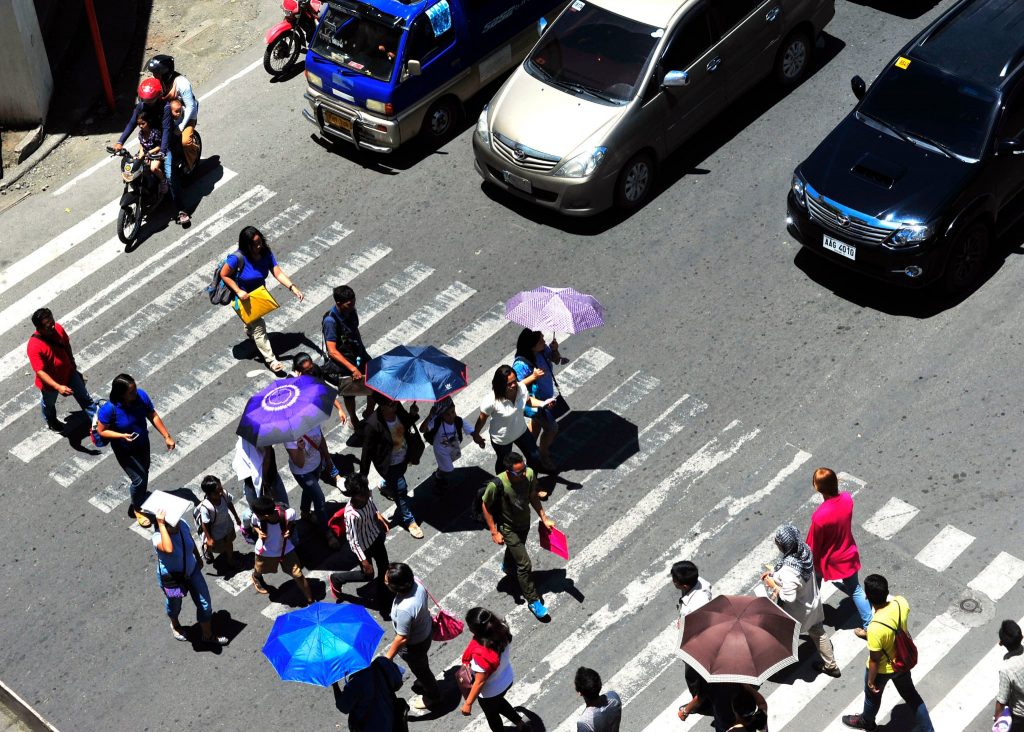
A GROUP has called out the city government to strengthen enforcement of traffic laws, particularly at pedestrian crossings, amid recent incidents involving pedestrians.
Interfacing Development Interventions for Sustainability (IDIS) expressed alarm over incidents involving pedestrians being hit while crossing the street using the designated pedestrian lanes.
This comes after a 77-year-old woman died while recuperating at the Southern Philippines Medical Center after being struck by an SUV while crossing a pedestrian lane along Daang Maharlika Highway on Monday afternoon.
IDIS stressed these incidents show a “growing disregard” for road safety and the basic rights of pedestrians.
“As the city continues to advocate for livable and sustainable communities, it is high time we put pedestrians first, starting with something as simple as respecting the white lines on our roads,” IDIS said.
The group said city government and traffic enforcement agencies should install clearer signage, repaint worn-out lanes, improve street lighting and visibility, and consider traffic-calming infrastructure in high-foot-traffic areas.
The group cited Baguio City’s “King of the Road” campaign, institutionalized through Ordinance No. 103, Series of 2009 (An Ordinance Establishing a Pedestrian Safety and Courtesy Program in the City of Baguio), highlighting that pedestrians have the highest respect and priority.
“Unfortunately, in Davao City, the promise of safety is increasingly broken. In too many instances, drivers either ignore or fail to slow down at pedestrian crossings, turning these supposed safety zones into danger zones, the group lamented.
Violators, it added, should be held accountable not only through penalties after accidents occur, but as part of daily road discipline.
The city leaders and urban planners are told to prioritise walkability and pedestrian safety in all road designs and infrastructure projects.
“A truly sustainable Davao is one where children can walk to school, Persons with Diverse Abilities (PWDs) and seniors can cross the road with ease, and every citizen, regardless of their mode of transport, can move through the city without fear,” the group added.
Citing the Citizen Walkability Study released in 2024, which revealed that many pedestrian crossings are unsafe, hindered by barriers such as parked or moving vehicles, poor visibility, and the lack of active enforcement.
Alarmingly, only 47% of respondents agreed with the statement, “Cars approach the intersection slowly enough for an elderly person or young child to feel safe crossing the street,” indicating that more than half of pedestrians do not feel safe at intersections.
In addition, 68% of respondents confirmed that drivers often exceed speed limits, which suggests there is an urgent need for traffic calming measures and stricter road discipline.
Prioritizing the walkability of streets, the study says, can encourage people to be active, which in turn reduces traffic congestion, lowers air pollution, and contributes to healthier communities.
“But when pedestrian infrastructure is neglected, and drivers are not held accountable, we discourage walking and push people back into cars, creating a cycle of danger and pollution,” it stressed.
The group added that drivers and vehicle owners should slow down, yield, and stop when someone is crossing, whether in a rush or not.
“Pedestrians are not obstacles. They are people. They are your constituents, your neighbors, your loved ones. Their safety must be non-negotiable,” it stressed.
